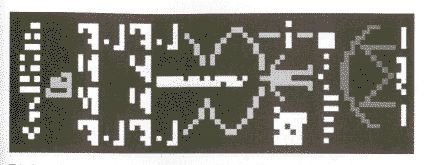1. Lewontin quote - what's wrong with a divine foot in the door, and should scientists (or anyone) make that decision for the rest of society? Why or why not?
2. Are scientific principles violated when non-naturalistic causes are considered for the origin of some aspect of our existence? Are philosophical principles violated when non-naturalistic causes are excluded from consideration from origins questions?
3. Is science a search for truth? Should it be? Comment on the following: Both paradigms, naturalism and intelligent design, must be considered if science is to be a truth-seeking enterprise.
4. I've presented two ways of viewing this debate. Do you agree with this representation? In what ways is this representation oversimplified? Can you propose other ways of representing this debate?
5. Is it possible for the "arrow of science" to point toward design, and if so, how? In other words, what kind of result/evidence would be represented by the arrow pointing toward design rather than naturalism?
6. Only 10% of the public buy the fully naturalistic story? Why do you think that is so?
7. This subject is difficult to discuss in our society. It invokes strong passions, and sometimes, poor behavior. Why do you think that is so? Why is an inference to intelligent design offensive to many scientists?
8. Is the integrity of science best protected when nonnaturalistic causes are excluded or included in considerations of origins?
9. What does (should) it mean to you when something is said to be a "scientific fact"?
10. Does naturalism = rationality?
11. Do you see a difference between pursuing natural causes in science and imposing the ideology of naturalism on society as rationality itself?
12. Analyze the logic of the argument for common descent from morphological similarites in light of the ubiquity of convergence.
13. Have the challenges to a naturalistic explanation of our existence increased or decreased with time / the progress of science?
14. Is the origin versus operation of an automobile a reasonable analogy for the origin versus operation of biological machines?
15. Can you think of any examples where people from either worldview attempt to impose their ideology on the rest of society?
16. In what sense might the design inference be a threat to science education? (see Alan Leshner article in The Akron Beacon Journal and counter argument -1 and/or counter argument - 2 )
17. Is the design inference an argument from ignorance? (see Eugenie Scott and Glenn Branch's article in School Board News and Dembski's rebuttal )
18. In discussing the SETI project, J. Bennett described the transmission broadcast in 1974 in which a picture was encoded in a series of 0s and 1s. The picture is shown below.
He states on page 176-177 "If members of an intelligent civilization picked up the message and laid out the 0s and 1s in a simple grid, they would see a small picture providing them with undeniable proof that they were not alone in the universe. ... Even if the recipients don't recognize the person and the other information in the picture, it should still be clear that this message was deliberately made."
What is it about this message that would make an alien recipient realize that this message was deliberately sent by an intelligent civilization? Is it appropriate to use this criterion to infer an intelligent source if it is present in biological systems?
19. If one equates naturalism with rationality, can one truly evaluate the following questions regarding inferential evidences objectively? How might this impact the integrity of science?
1. Is the data being presented selectively? (i.e. only evidence which agrees with a preferred view is cited)2. Is the evidence truly distinctive? (does it really distinguish between various alternative views?)
